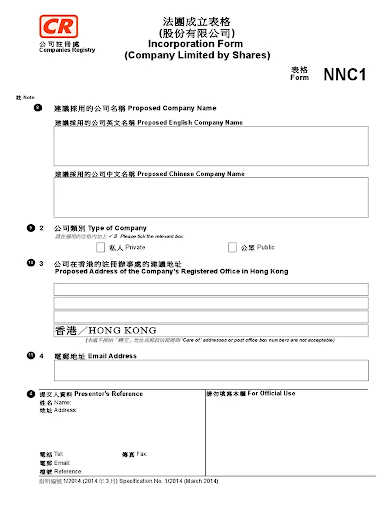Introduction
Hong Kong, a global financial center known for its dynamic business environment and international connectivity, has a unique telephone numbering system that supports its vibrant communication landscape. For businesses and individuals looking to establish a presence or manage communications in this bustling city, understanding the process of telephone number registration is crucial. This comprehensive guide explores the essentials of Hong Kong telephone number registration, including its importance, the registration process, types of telephone numbers, and key considerations for both personal and business use.
Understanding Hong Kong Telephone Number Registration
Telephone number registration refers to the process of acquiring and officially recording a telephone number for use within Hong Kong. This process ensures that the number is properly allocated, associated with a specific user or entity, and complies with local regulations. Registration is essential for establishing communication channels, whether for personal, professional, or business purposes.
Importance of Telephone Number Registration
1. Legal and Regulatory Compliance
- Regulatory Framework: In Hong Kong, telephone number allocation and registration are regulated by the Communications Authority (CA) under the Telecommunications Ordinance. Proper registration ensures compliance with legal requirements and helps prevent issues related to unauthorized use or fraud.
- Verification and Tracking: Registration provides a record of who owns or uses a specific telephone number, which is important for both regulatory oversight and consumer protection.
2. Business and Professional Use
- Brand Identity: For businesses, having a registered telephone number enhances brand identity and establishes a professional presence. It signals to customers and partners that the business operates within a legitimate framework.
- Customer Trust: A registered number helps build customer trust by ensuring that the contact information is valid and traceable, which is crucial for customer service and communication.
3. Personal Use
- Consistency and Reliability: For individuals, registering a telephone number ensures consistency and reliability in communication. It helps in managing personal or family contact information and provides a stable means of staying connected.
Types of Telephone Numbers in Hong Kong
1. Fixed-Line Numbers
- Residential and Business: Fixed-line numbers are used for residential and business purposes. These numbers are generally assigned to landline telephones and offer a stable communication channel.
- Customer Service Lines: Businesses often use fixed-line numbers for customer service hotlines and other support functions.
2. Mobile Numbers
- Mobile Network Providers: Mobile numbers are used for cellular phones and are provided by various network operators such as CSL, SmarTone, and China Mobile Hong Kong.
- Prefixes: Mobile numbers usually start with specific prefixes (e.g., 5, 6, 9) that are assigned to different mobile network operators.
3. Toll-Free and Premium Numbers
- Toll-Free Numbers: Businesses use toll-free numbers (e.g., 800, 810) to allow customers to call without incurring charges.
- Premium Numbers: These numbers (e.g., starting with 9) are used for services that charge higher rates, such as specialized information or entertainment services.
The Registration Process
1. Choosing a Service Provider
- Research Providers: Identify and research telecommunications providers in Hong Kong. Major providers include PCCW, Smartone, and China Mobile Hong Kong. Each provider offers different plans and services.
- Compare Plans: Compare different plans and services based on your needs, such as call rates, data packages, and additional features.
2. Application for Registration
- Personal Use: For personal telephone numbers, you typically need to visit a service provider’s retail store or apply online. Provide identification documents, such as your Hong Kong Identity Card (HKID) or passport.
- Business Use: For businesses, ensure that your business is properly registered with relevant authorities before applying for a business telephone number. You will need to provide business registration documents and identification for authorized representatives.
3. Documentation and Verification
- Identification: Both personal and business applicants must provide valid identification documents. For businesses, additional documents such as business registration certificates and proof of address may be required.
- Verification Process: The service provider will verify your identity and the information provided. This process ensures that the number is allocated to the correct user and is compliant with regulatory requirements.
4. Receiving and Activating the Number
- Number Allocation: Once your application is approved, you will be allocated a telephone number. For mobile numbers, you may receive a SIM card that needs to be activated.
- Activation: Follow the activation instructions provided by your service provider to start using your new telephone number. This may involve inserting the SIM card into your mobile device or connecting your landline to the network.
Key Considerations for Telephone Number Registration
1. Compliance with Regulations
- Regulatory Requirements: Ensure that you comply with the Telecommunications Ordinance and any other relevant regulations. This includes adhering to rules regarding number portability, data protection, and anti-spam measures.
- Number Portability: Hong Kong supports number portability, allowing users to switch service providers while retaining their telephone number. Familiarize yourself with the process if you need to change providers.
2. Choosing the Right Number Type
- Business Needs: Select the type of number that best fits your business needs. For example, a toll-free number can enhance customer service, while a premium number might be suitable for specialized services.
- Personal Preferences: For personal use, choose a number that is easy to remember and suits your communication needs.
3. Managing Your Number
- Updating Information: Keep your contact information up-to-date with your service provider. This ensures that you receive important notifications and can manage your account effectively.
- Service Features: Explore additional features offered by your service provider, such as call forwarding, voicemail, and international calling options.
4. Data Protection and Privacy
- Secure Information: Protect your personal and business information when registering a telephone number. Ensure that your service provider adheres to data protection regulations and maintains the confidentiality of your details.
- Privacy Settings: Use privacy settings provided by your service provider to manage unwanted calls and protect your personal information.
Common Issues and Solutions
1. Registration Delays
- Issue: Delays in registration can impact your ability to use the telephone number promptly.
- Solution: Plan ahead and allow sufficient time for the registration process. Contact your service provider to check the status of your application if there are delays.
2. Incorrect Information
- Issue: Providing incorrect information during registration can lead to issues with your telephone number.
- Solution: Double-check all information before submitting your application. If errors are discovered, contact your service provider to correct them promptly.
3. Billing Discrepancies
- Issue: Incorrect billing or unexpected charges can occur.
- Solution: Review your billing statements carefully and contact your service provider’s customer service department to resolve any discrepancies.
4. Number Portability Issues
- Issue: Switching service providers while retaining your number can sometimes be challenging.
- Solution: Ensure that you follow the proper procedures for number portability and work closely with both your old and new service providers to facilitate a smooth transition.
Conclusion
Telephone number registration in Hong Kong is a vital process for establishing communication channels, whether for personal, professional, or business purposes. Understanding the structure, types, and registration process of telephone numbers is crucial for ensuring compliance, effective communication, and seamless connectivity.
By selecting the right service provider, adhering to regulatory requirements, and managing your number effectively, you can optimize your telephone service and enjoy reliable communication in Hong Kong’s dynamic environment. Whether you are setting up a new number or addressing common issues, this comprehensive guide provides the information needed to navigate the telephone number registration process successfully.







